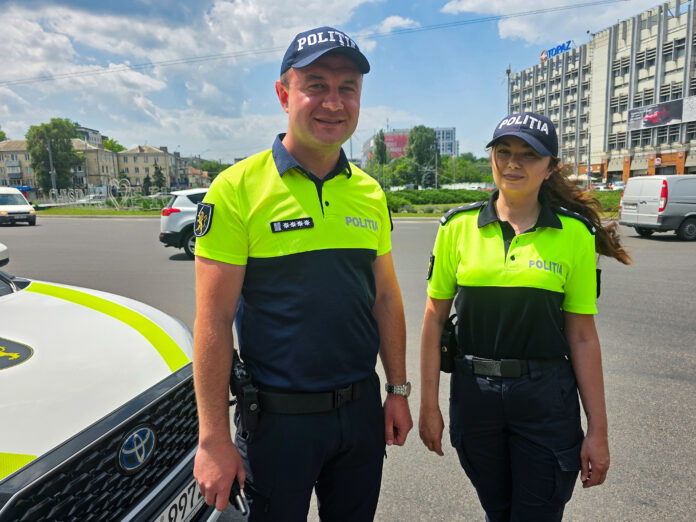The Ministry of Internal Affairs launched public debates through several open sessions with civil society on national strategic programs for developing the internal affairs system. The aim is to provide citizens with high-quality services, security, and public order at European standards.
The Government approved the updated Strategy for the Development of the Internal Affairs System for 2026–2030 in August. The strategy acts not only as a public policy document but also as a roadmap for consolidating a safe, modern state deeply anchored in European values.
The seven sectoral programs defined in the strategy outline the Ministry’s priorities and specify how to implement them in practice.
Among them, three stand out for their importance to national security, social peace, and creating a favorable climate for economic and investment development: the National Public Order and Security Program, the National Program for the Prevention and Combating of Crime, and the National SALW Program for Security and Arms Control (which the Government approved in August). These programs reflect Moldova’s commitments under Chapter 24 “Justice, Freedom and Security,” form part of the Rule of Law Roadmap (a benchmark in the EU accession process), and meet the requirements of the EU-supported Growth Plan for Moldova.
1. National Public Order and Security Program (2026–2030)
Public order and security form the foundation of any functioning democratic state. Without safe communities, citizens cannot fully exercise their rights, and the economy lacks a stable ground on which to develop.
This program introduces a modern vision inspired by European best practices. Authorities aim to reduce crime, increase citizens’ trust in the Police and Border Police, and shorten response times to emergency calls.
They plan to bring the Police closer to citizens through digitalization, inter-institutional cooperation, and special attention to protecting vulnerable people. This approach delivers a message of social solidarity and ensures that no one is left behind.
By building an efficient public order system, Moldova strengthens its resilience against hybrid risks, external pressures, and internal instability, while reinforcing social peace in a fragile geopolitical context.
FOR THE MOST IMPORTANT NEWS, FOLLOW US ON TWITTER!
2. National Program for the Prevention and Combating of Crime (2026–2030)
Crime in all its forms constantly tests the state’s ability to protect life, property, and fundamental freedoms. This program represents Moldova’s direct response to these challenges and its strong commitment to the EU.
Authorities adopt a multidimensional approach that integrates modern technologies, develops advanced investigative techniques, enhances international police cooperation, and intensifies data exchange with European law enforcement structures.
They place special emphasis on combating cybercrime, digital violence against women and children, and reducing the influence of organized crime networks. These measures not only strengthen internal security but also fulfill Moldova’s obligations under Chapter 24 and the Association Agreement.
In the long term, the program will deliver greater social peace: fewer victims, reduced violence, and a safer online environment. It will also foster economic growth, since businesses thrive only in a lawful, crime-controlled environment.
3. National SALW Program for Security and Arms Control (2026–2030)
In a regional context marked by war and instability, the proliferation of small arms and light weapons poses one of the greatest threats to national security. The SALW Program addresses this challenge through a legal and operational framework aligned with EU and UN standards.
Authorities aim to reduce risks posed by illegal weapons, increase voluntary surrender of arms, and strengthen capacities to detect and combat illicit trafficking. For citizens, this means fewer firearm incidents, safer communities, and stronger security.
Beyond internal benefits, the program strengthens Moldova’s reputation as a responsible international partner, capable of managing cross-border risks and contributing to regional security. Within the EU roadmap and Growth Plan, the SALW Program demonstrates that Moldova acts not only as a beneficiary of support but also as a provider of security.
Conclusion
The three programs – public order and security, crime prevention and combating, and arms control – form the essential pillars of Moldova’s security architecture for 2026–2030.
Together, they cover both citizens’ everyday safety and strategic protection against cross-border and hybrid threats. They will:
- Increase citizens’ safety,
- Strengthen public trust in state institutions,
- Reduce vulnerability to organized crime and external risks,
- Contribute directly to regional stability.
These programs serve as both a condition and a tool for accelerating European integration. They represent a condition because security and rule of law are core EU accession criteria, and a tool because they prove Moldova’s capacity to deliver tangible results and operate as part of the European area of security and justice.
The 2026–2030 period will mark a phase of strategic transformation, where internal security, social peace, and European integration intersect, offering Moldova the opportunity to consolidate its position as a stable, predictable state oriented toward the future.


